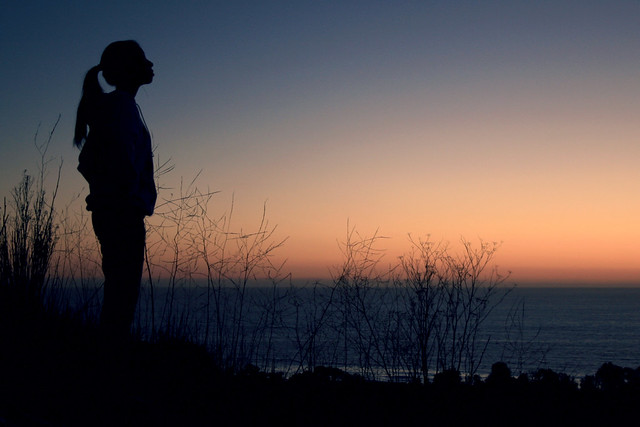I completed Cal Newport’s 30-day digital declutter a few months ago, and it made me cut my screen time way back. It also helped me rediscover solitude, an increasingly rare state in our hyperconnected age. I loved it – I feel both calmer and more rested.
In the distant past, being alone guaranteed solitude. If no one was with you, there was no input from other minds (solitude). Technology changed that. Books, telephones, television, and then smartphones allowed input from other minds to reach us even when we were alone.
Before the smartphone, that input couldn’t always reach us. Television sets and desktop computers were too large to carry around so their reach was limited to a particular room in our house. We sometimes carried books around with us, for sure, but we closed them and put them away when we were done reading, and they didn’t disrupt us after that. But we keep our smartphones turned on and within easy reach. And they allow a virtually infinite amount of input from others to reach us. Texts and news flashes arrive constantly, and the world’s accumulated store of distractions is at our fingertips. And so, what used to be a solitary endeavor like a walk is now filled with arguments, words, music, and electronic beeps.
Before my digital declutter, I hadn’t realized how my phone was chipping away at my solitude, and I was vaguely wondering why I was feeling tired all the time. The digital declutter helped me realize why: The constant chatter on my devices encroached on my solitude even during long stretches alone. I turned on a podcast when I was driving or doing housework. I read, watched television, or played with my phone. And I was reachable wherever I was, so texts from work disrupted my reverie on the beach in Rockport and news about recent mass shootings startled me during a walk in the local woods.
That’s no way to live, especially for an introvert. No wonder I felt tired.
Constant input makes me tense and exhausted; I need solitude in much in the same way that I need sleep. I need the quiet yin phase of silence so that I can rest.
But solitude isn’t just about rest. It’s also a time for reflection and for processing all those inputs. It is a space for mindfulness, for noticing our own thoughts and feelings, and for thinking a thought or feeling a feeling from beginning to end. It’s a time for figuring out what we think and feel ourselves, a time for articulating our own views. As Sherry Turkle puts it, “We find our voices in solitude.”
After some time spent in solitude, I begin to long for companionship. I seek out friends and I use the voice that I’ve found to share my ideas. Others respond, I listen, and we talk and laugh together. I need the whole cycle — solitude, companionship, and then solitude and companionship again. We all do.
If your smartphone has chipped away at your solitude in the way mine did, make room for solitude and reflection. Here are some possibilities:
- Drive to work or do the dishes in silence – don’t turn on music, video, or podcasts. Follow Thich Nhat Hanh’s advice when you can: “While washing the dishes one should only be washing the dishes.”
- Go for a walk without your phone (keep it turned off in your pocket if you must)
- Write in a journal
For my experience with Cal Newport’s 30-day digital declutter, see here. On how interruptions damage productivity, see here. And on why clicking “like” is a bad way to maintain friendships, see here.
The fine print:
I’m drawing on three of my favorite books:
- Cal Newport’s Digital Minimalism discusses solitude – its benefits, the way technology undermines it, and how we might reclaim it. He also outlines how to do a 30-day digital declutter and makes the case for it. I’m using the same definition of solitude as he does (it’s from Michael S. Erwin and Raymond Kethledge’s Lead yourself first: Inspiring Leadership Through Solitude): Solitude isn’t being alone; solitude is the absence of input from other minds.
- Sherry Turkle’s Reclaiming conversation raises serious questions about how technology undermines our relationships and our solitude, and she proposes ways of managing better. The quote above is from p. 317. (Newport is drawing on Turkle’s book as well.)
- Thich Nhat Hanh’s The Miracle of mindfulness discusses mindfulness in ordinary life. The line about dishes is from p. 3.


